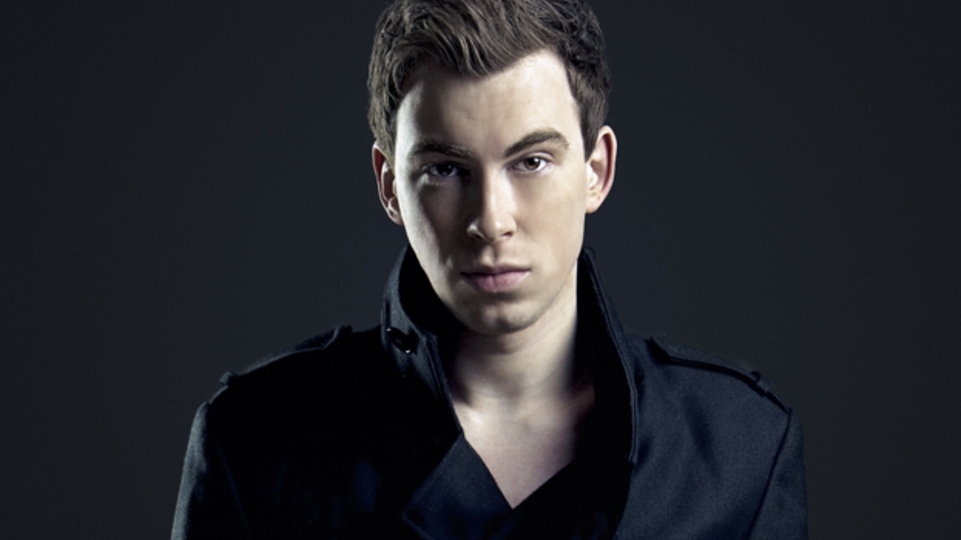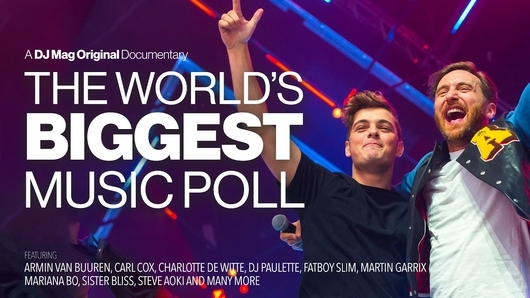
So there's a new No.1 DJ in the world this year — Hardwell, from Holland, born in 1988. And is he happy about it? “It feels incredible, you have no idea — what can I say?” Hardwell tells DJ Mag down the phone from his home in Breda in the southern part of the Netherlands.
“As a little kid when I started off as a DJ, I couldn’t even dream about that. I think it’s the biggest achievement you can get in the whole DJ scene.” Hardwell shot into the Top 100 list in 2011 at No.24 before rising to No.6 last year — and then leaping to No.1. Spookily, this is exactly the same trajectory that Tiësto took at the beginning of the noughties — in at 24, up to 6, then No.1. “Freaky, right?” Hardwell says. “Out of 100 numbers, it’s really weird, especially because he’s my mentor and everything and I’m following in his footsteps. “The funny thing is, the moment Tiësto became No.1 in DJ Mag was the moment that I realised, ‘Hey mum and dad, I want to become a DJ’,” he continues. “That inspired me, especially as we were hailing from the same city in Holland.
He’s always been like a mentor and role model.” Hardwell first met Tiësto four years ago when Tijs emailed him to say, ‘I really like your productions’. “I sent him some new ones I was working on at that time, and maybe one month later he invited me to his show at Privilege in Ibiza to come and play with him,” Hardwell says. “That was the first time I met him, and from the beginning we had a really great connection.” The two Dutch DJ/producers became good friends, and went in the studio together to make trancey electro screamer 'Zero 76'. Tiësto then took Hardwell on tour with him, playing some really big shows around North America and suchlike. “Yeah, that was a lot of fun, we were constantly on the road together — that’s actually how we became really good friends.” Hardwell says that it helped their friendship that they hailed from the same city — Breda. “I always bought my vinyl back in the day from his record shop,” he recalls. “Tijs was never around though, cos he was playing everywhere.
At that time Fedde Le Grand was one of the guys who worked there, and all the trance guys from back in the day like Dazzle and DJ Montana — it was a lot of fun to hang around there. I miss those times — now everybody is just logging into Beatport instead of going to a record shop.” DJ Mag asks Hardwell why so many of the top DJs hail from Holland, and he says that because there are so many parties there it's easy to gain experience. “I did six- or seven-hundred gigs in Holland before I played outside of Holland, there are so many parties every single week and a lot of good clubs,” he says. “Holland is so small, so it’s really easy to get in touch with all the DJs here. We all help each other too, it’s like one big family of DJs who know each other.
If you have a question about a production technique or a record, everybody just calls each other.” Hardwell starts talking about the culture of dance music in Holland, where it’s always been on the radio, and how he had a eureka moment when he was 13 after watching an MTV programme called The DJs that followed a few Dutch jocks like Armin, Ferry Corsten and Tiësto. “I already liked dance music, but I suddenly saw what a DJ actually did,” he says. He started playing in his local club in Breda at the age of 14 after the owner heard one of his unofficial remixes that he’d put online, and he played there every week for six months.
During this time, he got a call from Radio 538 — the biggest radio station in Holland, which had been playing his remixes on daytime radio. They offered him a record deal to release the remixes, and off the back of this he got offers to play lots of different clubs in the Netherlands. “When I was 15, every week I had a lot of gigs all over Holland — Amsterdam, Utrecht, The Hague, all the big cities,” Hardwell explains. DJ Mag starts wondering about his schoolwork — and the reaction of his parents. “My mum and dad really supported me in every single thing I did, I think they saw my passion in music and the whole DJ thing,” Hardwell says. “They always support me, but I had to finish my school first before I really started focusing on the music.”
Finishing school at 18 allowed him to focus full-time on music, but between the age of 15 and 18 he wasn’t officially allowed to enter clubs. “My mum and dad needed to come with me to every single gig, so they were there at every single gig until I was 18 — that’s how supportive they were!” Hardwell says. “Without them, I wouldn’t have got as far as I have now. When I told them I’d won [the Top 100 DJs poll], they both started crying!” Indeed, it was Hardwell’s dad who came up with his DJ name. “My original Dutch name is Robbert van de Corput, and if you translate ‘Corput’ in English you get ‘Hardwell’!” he says. “So my name in English is Robert Hardwell.
My dad came up with the name when I was 12-years-old and I had to register the website where I wanted to put out my music. That was DJHardwell.com — that’s how it started, and I never changed the name.” Who else has he been influenced by? “ Tiësto of course, and when I started DJing in Holland I met DJ Chuckie,” Hardwell says. “He was already at that time one of Holland’s biggest DJs, and he’s still one of the most amazing technical DJs I’ve seen play. “We had a lot of gigs together,” he continues, “and he mentored mefrom when I was 14 to, like, 16 or 17, cos I didn’t have that much experience — I just played different records — and he taught me how to take the crowd on a journey, that it was really important not to play only the hit records... all those things.”
Hardwell has played a variety of music when he DJs from the get-go — from hip-hop to trance — but now describes his style as “progressive with a dirty Dutch twist. Do I ever call my style EDM now? I think I’m too European, I’m still saying ‘dance music’ or ‘house music’ — although house is now different. When I say house I’m always thinking about guys like Dennis Ferrer. EDM to me is not like electronic dance music — EDM is a culture.It’s dance music in America, and they’ve made it a culture — almost like a way of living. I dunno, I’m still using the words ‘dance music’.”
The new I Am Hardwell documentary has a great clip of a young Hardwell aged 16, on a Dutch TV programme, talking about wanting to be the No.1 DJ in the world. It also features his philosophy — ‘If you can dream it, you can do it’. “Everything that’s possible, you can do it,” he believes. “Somebody told me that quote and that’s exactly what the documentary is all about — my career. That little boy from Holland had a dream to become the new No.1 DJ in the world, like Tiësto and Armin — and well, here we are. It’s only a dream, what’s happening right now. It’s still unbelievable.”
